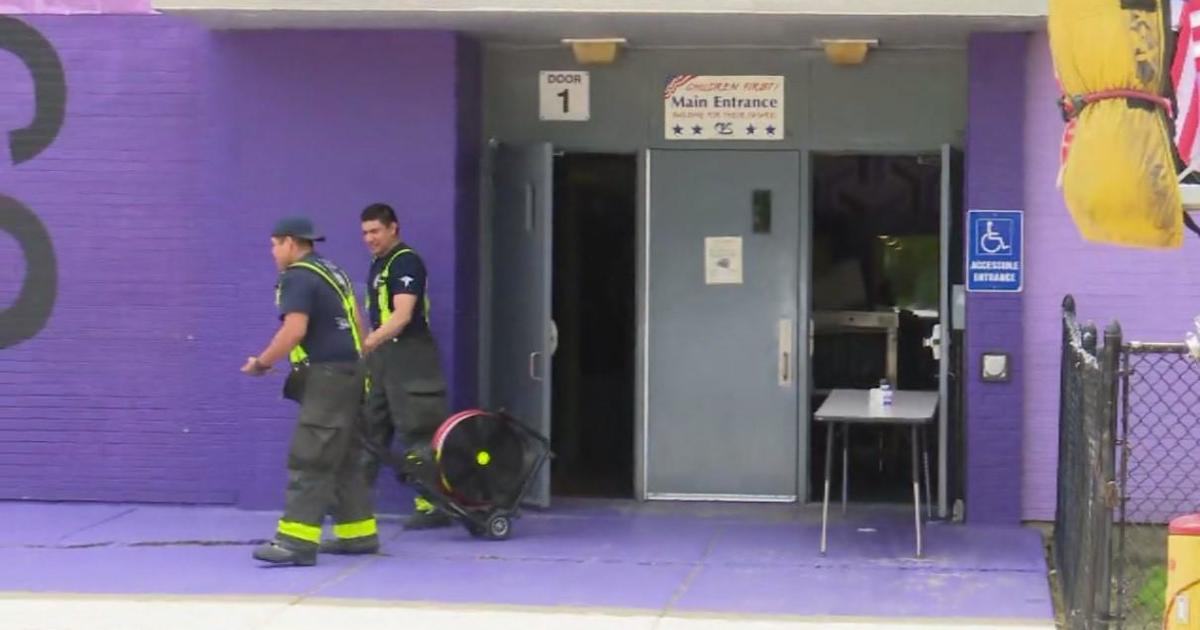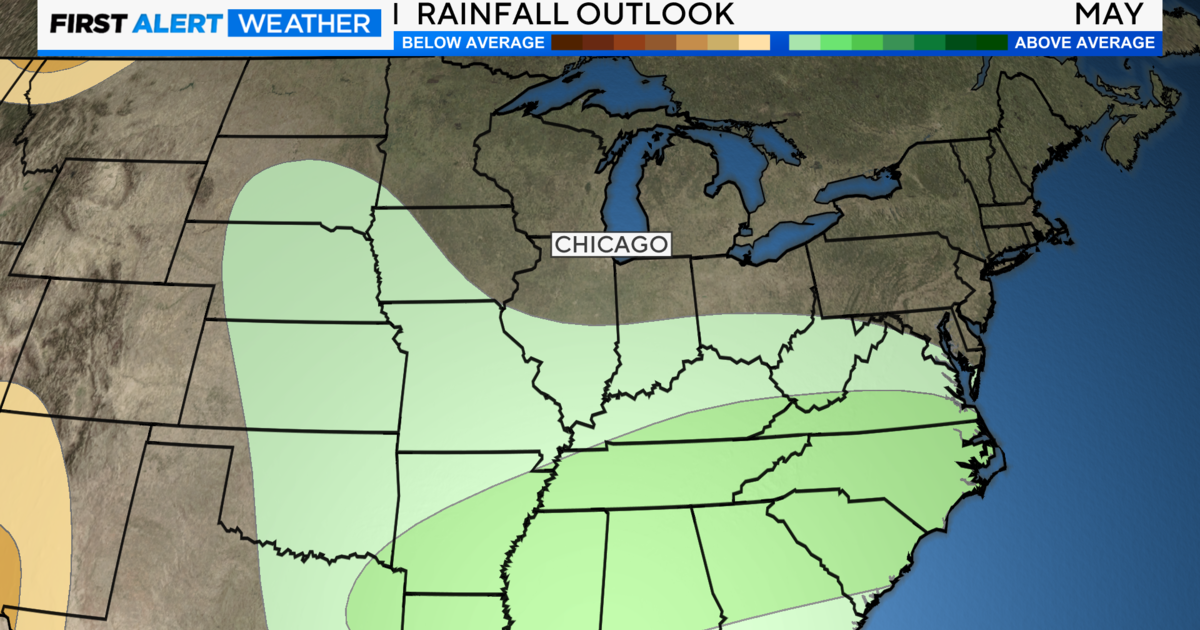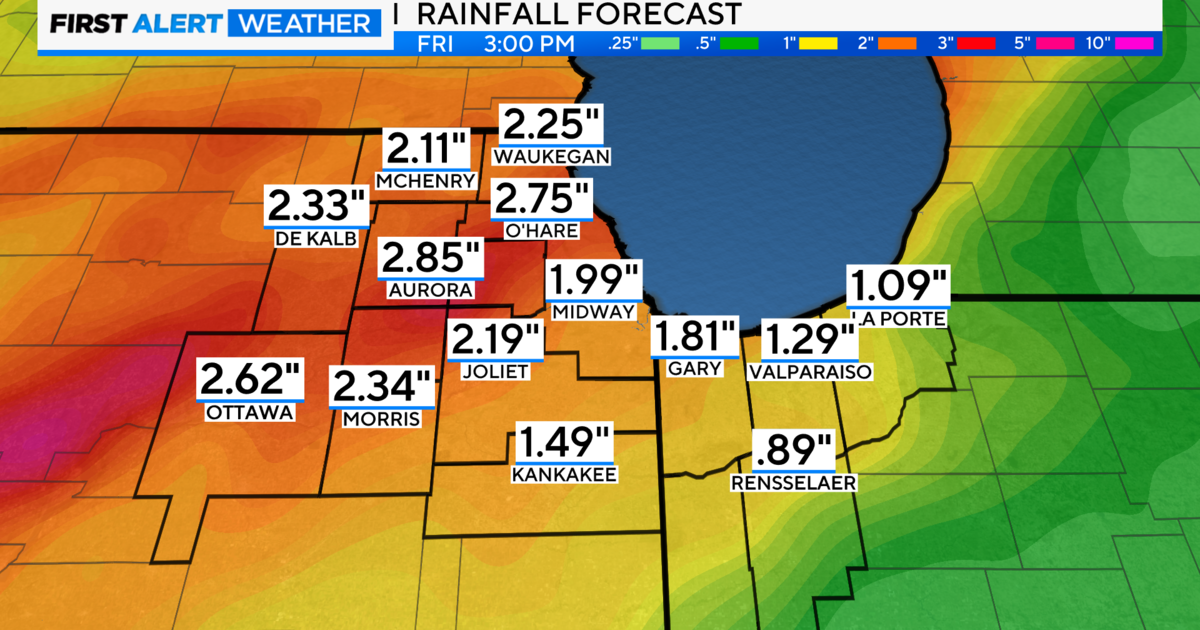Why is Chicago area river water reversed into Lake Michigan?
The video is from a previous report.
CHICAGO (CBS) -- On rare occasions of heavy rainfall, the Metropolitan Water Reclamation District officials will reverse the flow of river water into Lake Michigan.
It has occurred 50 times since 1985, most recently on July 2, when some areas of Chicago got eight inches of rain.
The most significant "dry spell" was five years in the mid-1990s.
Why it's necessary
It only happens when Chicago area waterway levels become higher than Lake Michigan.
Opening the flood gates and locks into the lake reduces river flooding and creates more capacity for stormwater in the area reservoirs.
Officials keep river water out of the lake to reduce water pollution.
What is TARP?
Chicagoland has a system of tunnels and reservoirs--part of the Tunnel and Reservoir Plan (TARP)--to collect stormwater. Wednesday's storms filled the McCook reservoir to 90% of capacity.
Here is a look at the status of the entire system:
Kirie TARP Status
The Kirie TARP system is comprised of the Kirie Tunnel and Majewski Reservoir.
Kirie Tunnel is 4% full = 2.75 million gallons
Majewski Reservoir = 0% full
McCook TARP Status
The McCook TARP system comprises the Mainstream Tunnel, Des Plaines Tunnel, and McCook Reservoir.
Mainstream Tunnel is 67% full = 803.6 million gallons
Des Plaines Tunnel is 16% full = 64 million gallons
McCook Reservoir is 90% full = 3.23 billion gallons
Calumet TARP Status
The Calumet TARP system comprises the Calumet Tunnel and Thornton Composite Reservoir.
Calumet Tunnel is 75% full = 470 million galloms
Thornton Composite Reservoir is 19% full = 1.5 billion gallons
List of flooding dates
Here is a listing of the times MWRD took action to send water into Lake Michigan.
2021 None
2020 5/17-5/18
2020 5/15
2019 10/3
2018 None
2017 10/14-10/15
2017 4/29-4/30
2016 7/24
2015 6/15-6/16
2014 6/30-7/1
2013 4/18-4/19
2012 None
2011 7/23
2011 5/29
2010 7/24
2009 6/19
2009 3/8
2009 2/26-2/27
2008 12/27-12/28
2008 9/13-9/16 Record 11 million gallons flowed into the lake.
2007 8/23-8/24
2006 None
2005 None
2004 None
2003 None
2002 8/22
2001 10/13
2001 8/31
2001 8/2
2000 None
1999 6/13
1998 None
1997 8/16-8/17
1997 2/20-2/22
1996 7/17-7/18
1995 None
1994 None
1993 None
1992 None
1991 None
1990 11/27-11/28
1990 8/17-8/18
1990 5/9-5/10
1989 8/3-8/4
1988 None
1987 8/25-8/26
1987 8/13-8/14
1986 10/3
1985 8/6
1985 3/4
Flooding map
Wednesday's storms have the potential to be severe, with damaging winds, large hail, and possible flooding.
Right now, here is a look at Chicago homes that have reported basement flooding or water in the street on Wednesday. The West Side has been hit hard.



